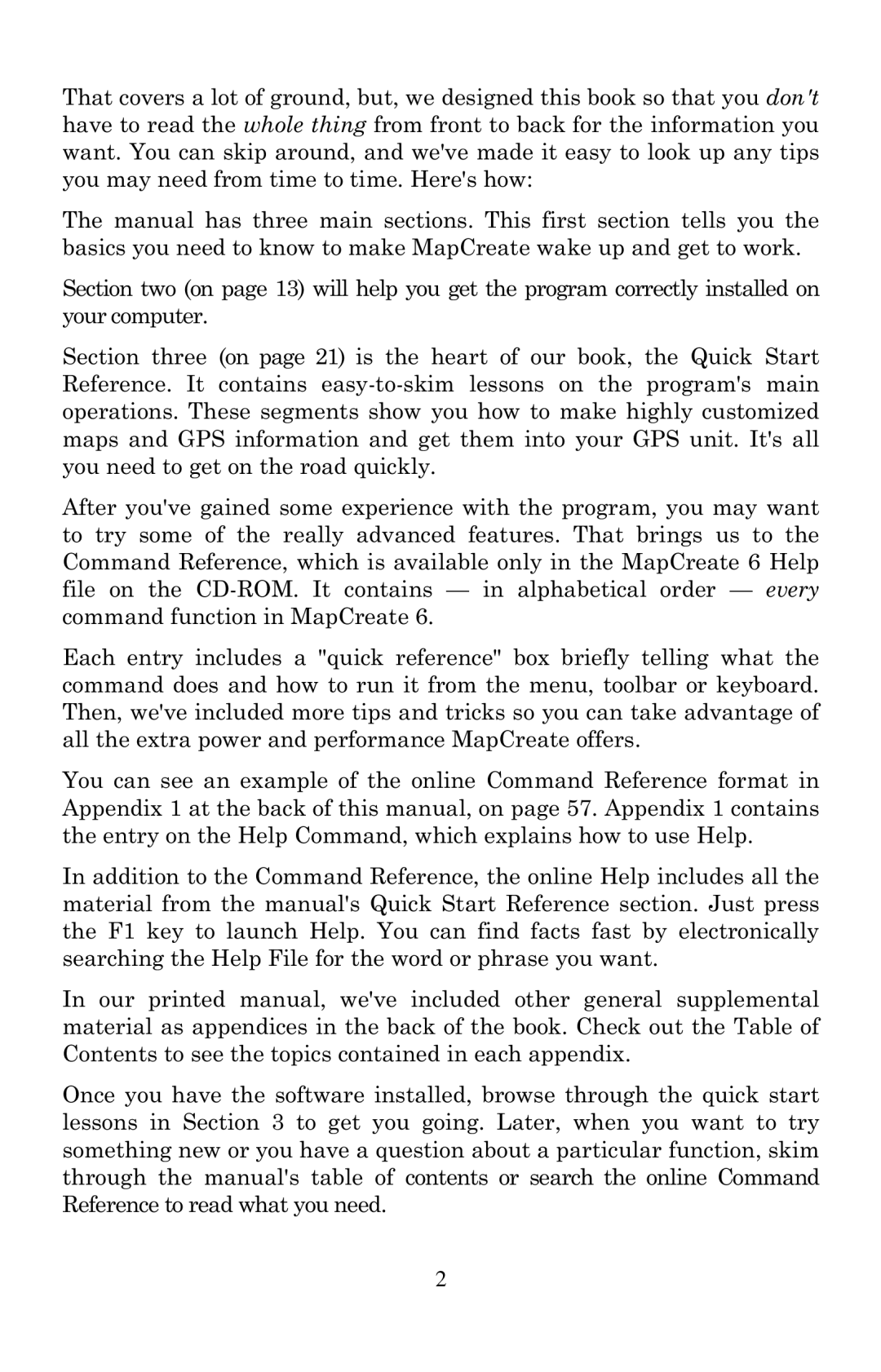That covers a lot of ground, but, we designed this book so that you don't have to read the whole thing from front to back for the information you want. You can skip around, and we've made it easy to look up any tips you may need from time to time. Here's how:
The manual has three main sections. This first section tells you the basics you need to know to make MapCreate wake up and get to work.
Section two (on page 13) will help you get the program correctly installed on your computer.
Section three (on page 21) is the heart of our book, the Quick Start Reference. It contains
After you've gained some experience with the program, you may want to try some of the really advanced features. That brings us to the Command Reference, which is available only in the MapCreate 6 Help file on the
Each entry includes a "quick reference" box briefly telling what the command does and how to run it from the menu, toolbar or keyboard. Then, we've included more tips and tricks so you can take advantage of all the extra power and performance MapCreate offers.
You can see an example of the online Command Reference format in Appendix 1 at the back of this manual, on page 57. Appendix 1 contains the entry on the Help Command, which explains how to use Help.
In addition to the Command Reference, the online Help includes all the material from the manual's Quick Start Reference section. Just press the F1 key to launch Help. You can find facts fast by electronically searching the Help File for the word or phrase you want.
In our printed manual, we've included other general supplemental material as appendices in the back of the book. Check out the Table of Contents to see the topics contained in each appendix.
Once you have the software installed, browse through the quick start lessons in Section 3 to get you going. Later, when you want to try something new or you have a question about a particular function, skim through the manual's table of contents or search the online Command Reference to read what you need.
2
